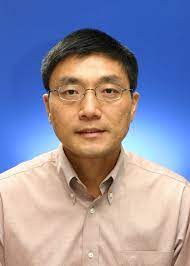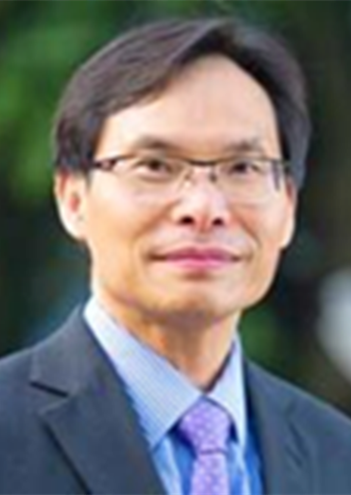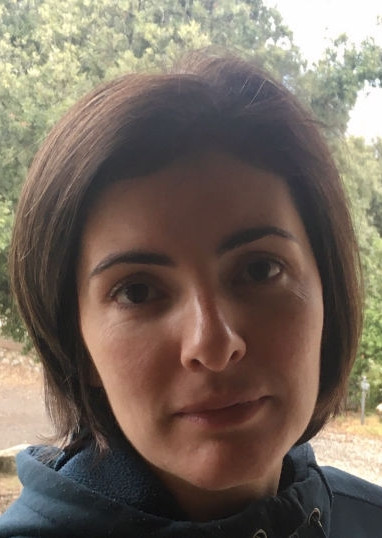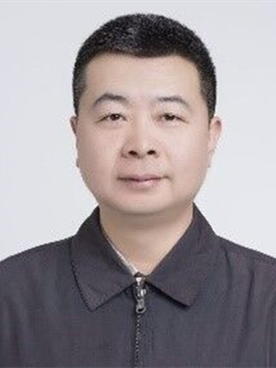 |
Prof. Weisi Lin (IEEE Fellow, IET Fellow)
President's Chair in Computer Science
|
Weisi Lin is an active researcher and research leader in image processing, perception-based signal modelling and assessment, video compression, and multimedia communication. He had been the Lab Head, Visual Processing, Institute for Infocomm Research (I2R), Singapore. He is currently a President’s Chair Professor in College of Computing and Data Science, Nanyang Technological University (NTU), Singapore, where he also serves as the Associate Dean (Research). He is a Fellow of IEEE and IET. He has been awarded Highly Cited Researcher since 2019 by Clarivate Analytics, and elected for the Research Award 2023, College of Engineering, NTU. He has been a Distinguished Lecturer in both IEEE Circuits and Systems Society (2016-17) and Asia-Pacific Signal and Information Processing Association (2012-13). He has been an Associate Editor for IEEE Trans. Neural Networks Learn. Syst., IEEE Trans. Image Process., IEEE Trans. Circuits Syst. Video Technol., IEEE Trans. Multim., IEEE Sig. Process. Lett., Quality and User Experience, and J. Visual Commun. Image Represent. He serves as a General Co-Chair for IEEE ICME 2025 and the Lead General Chair for IEEE ICIP 2027, and has been a TP Chair for several international conferences. He believes that good theory is practical and has delivered 10+ major systems for industrial deployment with the technology developed. He has been the Programme Lead for the Temasek Foundation Programme for AI Research, Education & Innovation in Asia, 2020-2024.
Speech Abstract: To be added
 |
Prof. Sam KWONG Tak Wu
(IEEE Fellow, US National Academy of Innovators Fellow, Hong Kong Academy of Engineering and Sciences Fellow)
Chair Professor of Computational
Intelligence,
|
Professor KWONG Sam Tak Wu is the Associate Vice-President (Strategic Research), J.K. Lee Chair Professor of Computational Intelligence, the Dean of the School of Graduate Studies and the Acting Dean of the School of Data Science of Lingnan University. Professor Kwong is a distinguished scholar in evolutionary computation, artificial intelligence (AI) solutions, and image/video processing, with a strong record of scientific innovations and real-world impacts. Professor Kwong was listed as the World’s Top 2% Scientists by Stanford University since 2021 and one of the most highly cited researchers by Clarivate in 2022 and 2023. He has also been actively engaged in knowledge transfer between academia and industry. He was elevated to IEEE Fellow in 2014 for his contributions to optimization techniques in cybernetics and video coding. He was a Fellow of the Asia-Pacific Artificial Intelligence Association (AAIA) in 2022, and the President of the IEEE Systems, Man, and Cybernetics Society (SMCS) in 2021-23. He is a fellow of US National Academy of Inventors (NAI) and the Hong Kong Academy Awards of Engineering and Sciences (HKAES). Professor Kwong has a prolific publication record with over 350 journal articles, and 160 conference papers with an h-index of 90 based on Google Scholar. He is currently the associate editor of a number of leading IEEE transaction journals.
Speech Abstract: High Dynamic Range (HDR) video is a technology that significantly enhances the visual experience by expanding the range of contrast and color in video content. Unlike standard dynamic range (SDR) video, HDR allows for brighter highlights, deeper shadows, and a wider color gamut. This results in more realistic and vibrant images that closely mimic the way the human eye perceives the real world. In this segment, we will delve into the fundamental principles of HDR, exploring how it works, the technical standards behind it (such as HDR10, Dolby Vision, and HLG), and the benefits it brings to various types of content, from movies and TV shows to video games and live broadcasts In this talk, I will talk about the following:
HDR Image Reconstruction
High dynamic range (HDR) image reconstruction is a process that aims to create images with a greater range of luminance levels than what is achievable with standard digital imaging techniques. This allows for the capture of both very bright and very dark details in a scene, closely mimicking human vision. By combining multiple images taken at different exposure levels, HDR reconstruction techniques can produce visually stunning and highly detailed images that better represent the range of light present in real-world scenes.
EIN: Exposure Induced Network for Single Image HDR Reconstruction
The Exposure Induced Network (EIN) for Single Image HDR Reconstruction is a novel deep learning approach designed to generate HDR images from a single standard dynamic range (SDR) input. Unlike traditional methods that require multiple exposures, EIN leverages a neural network to predict and reconstruct HDR content by learning the relationships between different exposure levels. This enables the creation of high-quality HDR images even in situations where only a single exposure is available, making HDR imaging more practical and accessible for various applications.
LGFM: HDR Image Quality Assessment Based on Frequency Disparity
The Local and Global Frequency Modulation (LGFM) method for HDR image quality assessment is a sophisticated approach that evaluates the quality of HDR images based on the disparity in frequency components. By analyzing both local and global frequency information, LGFM can more accurately reflect the human visual system's sensitivity to different types of artifacts and distortions in HDR content. This results in a more reliable and comprehensive assessment of HDR image quality.
 |
Prof. Benedetta Tondi
University of Siena, Italy
|
Benedetta Tondi received the MSc degree in electronics and communications engineering, and the PhD degree in information engineering and mathematical sciences, from the University of Siena, Italy, in 2012 and 2016, respectively. She is currently an Associate Professor at the Department of Information Engineering and Mathematics, University of Siena. She is a member of the Information Forensics and Security Technical Committee of the IEEE Signal Processing Society. Her research interests focus on adversarial signal processing, multimedia forensics, AI security, and watermarking of deep neural networks. She currently serves as an Associate Editor for the IEEE Transactions on Information Forensics and Security and the IEEE Signal Processing Letters. She has been Technical Program Chair of ACM IH&MMSEC 2022 and Area Chair of several IEEE conferences and workshops. She has received Best Paper Awards at WIFS and MMEDIA. She is the recipient of the 2017 GTTI PhD Award for the best PhD thesis defended at an Italian University in the areas of Communications Technologies (Signal Processing, Digital Communications, Networking).
Speech Abstract: As generative AI
continues to evolve, concerns around
transparency, authenticity, and intellectual
property are becoming more pressing. Tools
like GPT-4, DALL·E, and Midjourney, powered
by large-scale foundation models, are now
widely used to generate realistic images,
text, and other media. However, their
ability to produce synthetic content
indistinguishable from human-generated
material raises critical issues—from
copyright infringement to the spread of
misinformation and deepfakes.
In response to these challenges, model
watermarking has emerged as a promising
approach to protect the intellectual
property of generative AI models and to
promote trustworthy AI. By modifying the AI
models in such a way that imperceptible
signals are embedded into AI-generated
outputs, watermarking enables downstream
identification, authentication, and
traceability of synthetic media.
After a general introduction on the topic of
Deep Neural Network (DNN) watermarking, the
talk delves into technical strategies for
embedding robust watermarks into GANs and
Diffusion Models—two of the most powerful
families of generative models—in such a way
that each model output contains an embedded
watermark that can be reliably recovered
during the identification phase. These
watermarks enable copyright protection and
provide a means to trace generated content
back to the source model that produced it,
supporting model attribution and content
authentication. Methods embedding watermarks
post-training are also discussed. The
keynote aims to offer both a conceptual and
practical understanding of watermarking as a
cornerstone for building trust in generative
AI, while also outlining open challenges and
limitations.
 |
Assoc. Prof. Rui Chen
(IEEE Member)
|
Rui Chen
(Member, IEEE) received the Ph.D. degree in
instrument science from Tsinghua University,
China, in 2010. He is currently an Associate
Professor with the School of
Microelectronics, Tianjin University. He has
authored or coauthored one book and more
than 70 technical articles in refereed
journals and proceedings. His current
research interests include generative
artificial intelligence technology and
cognitive theory.
Speech Abstract: To be added